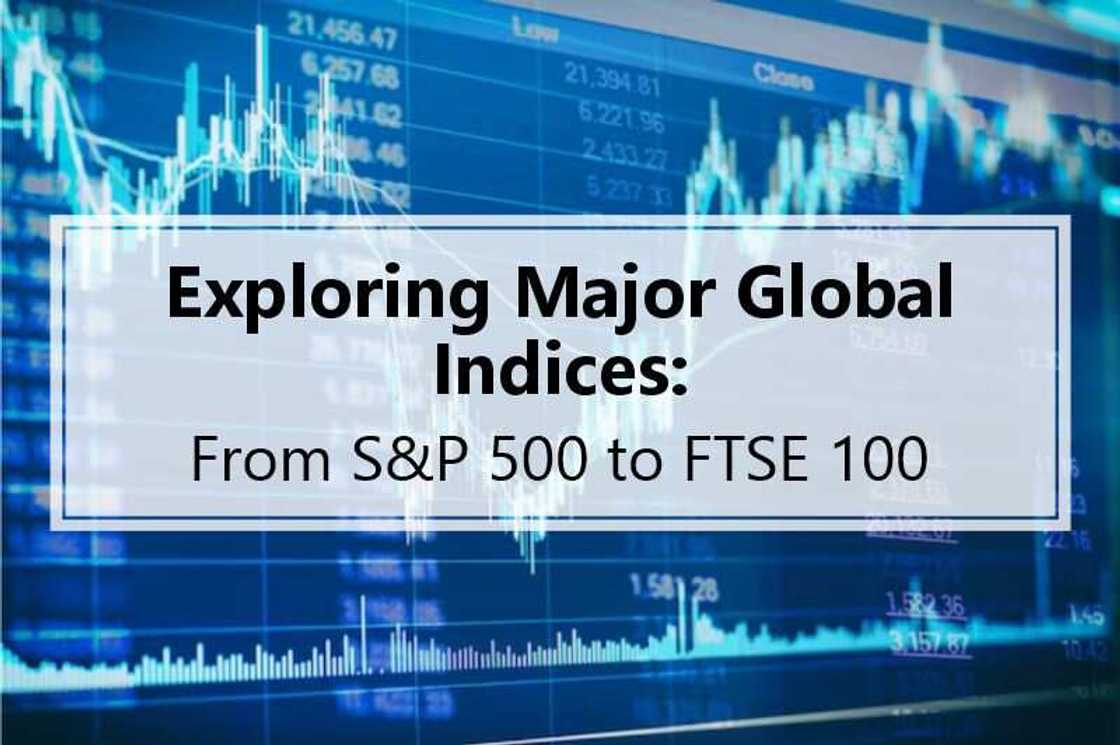Exploring Major Global Indices: From S&P 500 to FTSE 100
An assortment of stocks in a market comprises a stock market index. Traders and economists use it as a tool for investing, comparing returns on various assets, and monitoring the economy as a whole. Global, regional, and national indices are some of the most popular categories of indexes.
Indexes used on the stock market depict the value of a collection of underlying, publicly traded businesses. A stock market index tracks a group of stocks to assess the performance of the market as a whole.
This article discusses a number of the most popular stock indices in the world, including the S&P 500, DJIA, NASDAQ 100, and FTSE 100.

Source: UGC
The S&P 500
The Standard & Poor's 500 Index, sometimes known as the S&P 500 Index, measures the performance of 500 of the largest publicly traded corporations in the United States. Due to the listing of two share classes for three of the components, the index really includes 503 components.
Because the index takes other factors into account, it is not a precise list of the top 500 U.S. corporations by market cap. However, the S&P 500 index is recognised as one of the finest indicators of the performance of well-known American equities and, consequently, that of the stock market as a whole when trading indices.
The DJIA
The stock market index called the Dow Jones Industrial Average (DJIA) keeps track of 30 significant, publicly traded blue-chip businesses that trade on the NYSE and Nasdaq. The Dow Jones was founded in 1896 by Charles Dow and his business partner, Edward Jones, and is named after him. The index, sometimes known as the Dow 30, is seen as a barometer of the overall U.S. economy.
The NASDAQ 100
The 100 biggest, most traded businesses listed on the Nasdaq stock exchange make up the Nasdaq 100 Index. Companies from a variety of industries, including manufacturing, technology, healthcare, and others are included in the index. Commercial and investment banks and other members of the financial industry are not included in the index.
Since the Nasdaq 100 is an index, investors cannot buy it directly, but they can invest in exchange-traded funds (ETFs), mutual funds, futures and options, and annuities to obtain exposure .by trading indices.
The FTSE 100
The Financial Times Stock Exchange (FTSE), now referred to as FTSE Russell Group, is a British financial institution that focuses on offering index services for the major international financial markets.
The owner of the FTSE Russell Group is the London Stock Exchange Group (LSEG). The LSEG also owns other financial companies like Millennium IT and Borsa Italiana in addition to the FTSE Russell Group.
The FTSE offers numerous indexes, but its two most well-known indexes are the FTSE 100, which is made up of the largest blue-chip stocks listed on the London Stock Exchange, and the Russell 2000 Index, which is an index of the 2,000 smallest stocks in the Russell 3000 Index and represents the small-cap stock market.
[Sponsored]
Source: Legit.ng


